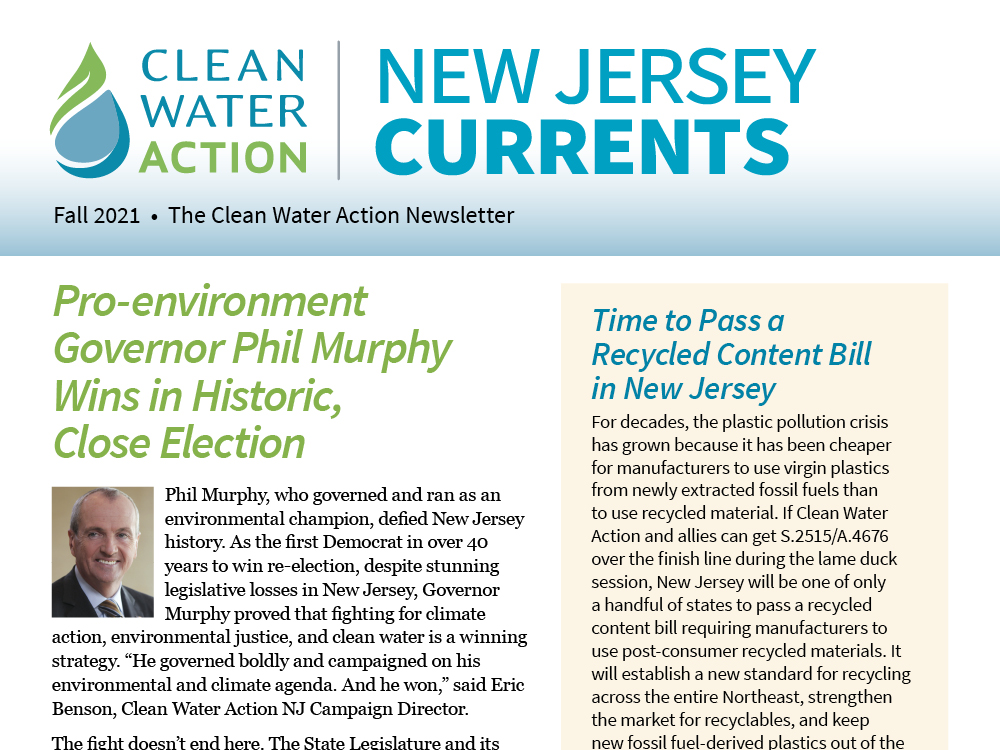In this Issue
- Pro-environment Governor Phil Murphy Wins in Historic, Close Election
- Time to Pass a Recycled Content Bill in New Jersey
- What’s the Score on the New Jersey Legislature?
- Let’s Not Turn the Garden State into the Warehouse State
- Electric Trucks Fleet at NJ Ports
- Green Jobs Council Gets into Gear
- Welcome Aubrey
- Internships Available
Pro-environment Governor Phil Murphy Wins in Historic, Close Election
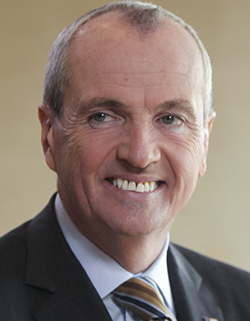
Phil Murphy, who governed and ran as an environmental champion, defied New Jersey history. As the first Democrat in over 40 years to win re-election, despite stunning legislative losses in New Jersey, Governor Murphy proved that fighting for climate action, environmental justice, and clean water is a winning strategy. “He governed boldly and campaigned on his environmental and climate agenda. And he won,” said Eric Benson, Clean Water Action NJ Campaign Director.
The fight doesn’t end here. The State Legislature and its leadership had a major election night shakeup. Now they are scrambling to create a new political power lineup as well as set priorities for the lame duck session. Contact your state legislators to tell them what pro-environmental bills YOU want to see passed before the term ends in January!
Time to Pass a Recycled Content Bill in New Jersey
For decades, the plastic pollution crisis has grown because it has been cheaper for manufacturers to use virgin plastics from newly extracted fossil fuels than to use recycled material. If Clean Water Action and allies can get S.2515/A.4676 over the finish line during the lame duck session, New Jersey will be one of only a handful of states to pass a recycled content bill requiring manufacturers to use post-consumer recycled materials.
It will establish a new standard for recycling across the entire Northeast, strengthen the market for recyclables, and keep new fossil fuel-derived plastics out of the waste stream. It already passed the NJ Senate and awaits action by the Assembly. Urge your Assembly members to make the recycled content bill a priority during lame duck!
What’s the Score on the New Jersey Legislature?
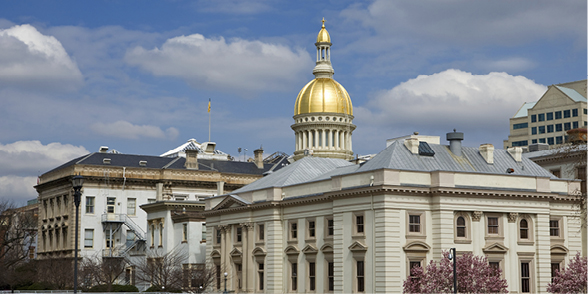
The New Jersey Legislature just closed its most productive session on environmental issues in more than a decade. This is good because New Jersey is facing overlapping climate, health, democratic, racial and economic crises, according to the latest New Jersey Legislative scorecard, released by Clean Water Action in October 2021.
The scorecard documents action on the sixteen most significant environmental bills of the 2020-21 NJ Legislature, as well as the steps legislators must still take to protect residents’ health and tackle these crises. The scorecard found:
- 11 pro-environment bills passed both houses and were signed into law by Governor Murphy;
- 8 of these bills previously highlighted as “stalled” in the 2019 Legislative Scorecard are now law;
- Democrats voted overwhelmingly pro-environment while Republicans generally did not;
- 19 legislators were named heroes for their environmental leadership with two, Senators Weinberg (D-37) and Bateman (R-16) getting special recognition as they retire this January — Senate President Sweeney (D-3) and Assembly Speaker Coughlin (D-19) were also recognized for presiding over these environmental successes.
Clean Water Action hopes the legislature continues to prioritize environmental and social justice remedies, not just when a health or a racial justice crisis demands it. During the upcoming lame duck session and the 2022 session the legislature must prioritize:
- Three pro-environment bills during this lame duck session — Recycled Content, Clean Energy Equity and the Green Amendment;
- Eliminating roadblocks to democracy in New Jersey that privilege political insiders, and pre-date the “Big Lie”;
- Fulling funding Clean Energy Fund and NJ Transit; and
- Programs that cut climate emissions by 50% by 2030 to ensure a livable future and comply with Governor’s Executive Order 274.
Visit the organization’s “NJ Action” page on a regular basis to find out about the latest calls to action.
To view the 2021 Scorecard, and see the list of 2021 environmental champions, please visit CleanWater.org/NJScorecard2021
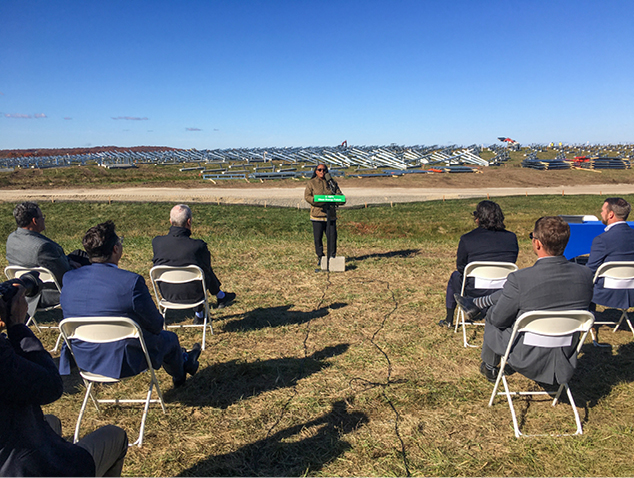
◀ Governor Murphy announced an Executive Order to reduce New Jersey greenhouse gas emissions to 50% of their 2006 levels by 2030. Clean Water Action Environmental Justice Director Kim Gaddy spoke at the event. Rewatch here.
Let’s Not Turn the Garden State into the Warehouse State
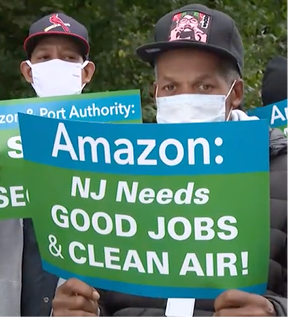
Urban, suburban and rural neighborhoods are being overwhelmed with warehouse proposals that are destroying quality of life, harming health, and devouring open space.
“We need to curb runaway warehouse development with good planning, clear mandates, strong enforcement, and zero carbon emissions as fast as possible,” said Janet Tauro, NJ Board Chair, Clean Water Action.
While warehouses are proliferating everywhere, reducing pollution loads in low income and of color port communities should be a priority, not further concentrating goods movement and warehousing.
Port Newark and Elizabeth, largest on the East Coast, is served by 20,000 trucks on a daily basis transporting over a billion ton of goods and growing 7-8% annually. Port trucks are some of the oldest, dirtiest and travel the shortest distance (70 miles or less). They spew dirty diesel emissions into neighboring communities and are inhaled by truck drivers and workforce.
Diesel emissions, which contain the fine particulate known as black carbon, have been linked to asthma, cancer, heart disease, stroke and neurological disorders. “We are literally taking someone’s breath away in some cases forever, particularly the elderly, those with pre-existing health conditions, drivers, and children,” said Amy Goldsmith, NJ Director, Clean Water Action.
In some cases, warehouses should not be built at all, but when they are the community must have a say and binding agreement, including but not limited to:
- Mandate that the structures be 100 percent emissions-free, energy self-sustaining (e.g. solar, mini turbines, geothermal, using electric vehicles for battery/energy storage during outages).
- Establish emission free-zones and corridors; areas where diesel spewing trucks are not allowed (i.e. near homes, schools, parks, childcare centers).
- Electrify all trucks and facility infrastructure including electric charging stations.
- Enforce federal Clean Water Act, stormwater rules, wetlands and drinking water protections.
- Repurpose existing vacant office and retail complexes, malls, department stores near highways.
While Amazon is not the only warehouse giant in the state, it recently became New Jersey’s biggest employer. Environmental, worker and safety concerns are rampant. Clean Water Action has been standing with its allies — Make the Road NJ, Teamsters, SEIU32BJ, South Ward Environmental Alliance and others — in protesting a secret deal between the Port Authority of NY&NJ (PANYNJ) and Amazon to operate a huge cargo facility at Newark Airport. If approved, the impacted port-adjacent communities want to ensure good jobs and clean air for their residents. View event held in Newark’s South Ward where the organization’s New Jersey State Director and Wynnie-Fred Victor Hinds, NJ Board Member and a local resident spoke.
If you are a local warehouse activist and want to join our newly forming statewide campaign, sign up and take our survey.
Electric Trucks Fleet at NJ Ports
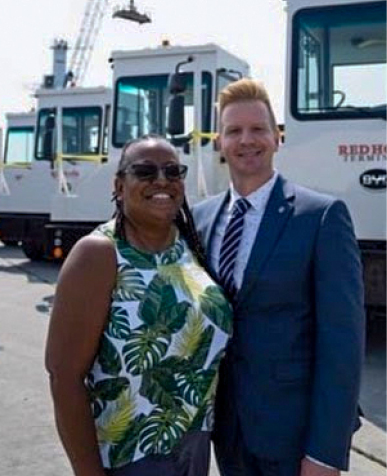
Kim Gaddy, Environmental Justice Director for Clean Water Action, spoke at a Port Newark event where Red Hook Terminals showcased its new fleet of ten zero-emission battery electric yard tractors — the single largest private deployment of zero-emission battery electric trucks on the East Coast.
Kim was joined by NJ Department of Environmental Protection Commissioner Shawn LaTourette, Port Authority of New York and New Jersey Port Commerce Director Sam Ruda, Newark Deputy Mayor Allison Ladd, and several others to applaud these efforts toward zero emissions at the Port. Watch here.
Green Jobs Council Gets into Gear
Clean Water Action recently led a tour around the City of Newark highlighting how environmental burdens and socioeconomic barriers impact neighborhoods. The tour was led by Kim Gaddy, Clean Water Action’s Environmental Justice Director and member of the NJ Council on the Green Economy, and participants included First Lady Tammy Murphy, DEP Commissioner Shawn LaTourette and council members. The tour included toxic sites, waste and scrap yard facilities, truck depots, and heavily polluted areas such as the Doremus Avenue chemical corridor, South Ward’s Frelinghuysen Avenue truck and industrial corridor, and Port Newark Marine Terminal. The South Ward corridor is directly adjacent (no buffer zones) to youth and adult detention facilities, a dialysis center, and the highest concentration of seniors and families living in Newark public housing, thereby exposing highly vulnerable residents to disproportionate levels of pollution and health hazards.
The tour also highlighted “positives” like Aero Farms and Down Bottom Farms, community-based regenerative projects as an alternative to the polluting industries that harm communities and invest little in them. The tour will inform the Council’s work in developing a “green economy” roadmap that creates quality jobs and opportunities for all New Jersey residents while reducing existing environmental and public health stressors in overburdened communities of color and low income neighborhoods.
Welcome Aubrey

Thanks to the support of the William Penn Foundation, Aubrey Mollinedo has joined Clean Water Action as its new Water Justice Coordinator for the Trenton and Mercer County area encompassing the Assunpink Creek Watershed. Aubrey has over 20 years of Environmental Justice programming experience having served on the Essex County Environmental Commission, as the Township of Irvington’s “Keep Irvington Beautiful” Executive Director, Clean Communities Coordinator and Certified Recycling Professional. If you live in the Trenton area and want to get involved, contact Aubrey at amollinedo@cleanwater.org.
Internships Available
Looking for a paid field canvass internship in either our Long Branch or Montclair office? Work with Clean Water Action’s professional outreach team to engage communities in local, state, and national issues, educating the public, building support, and channeling that support into action. Apply here.
